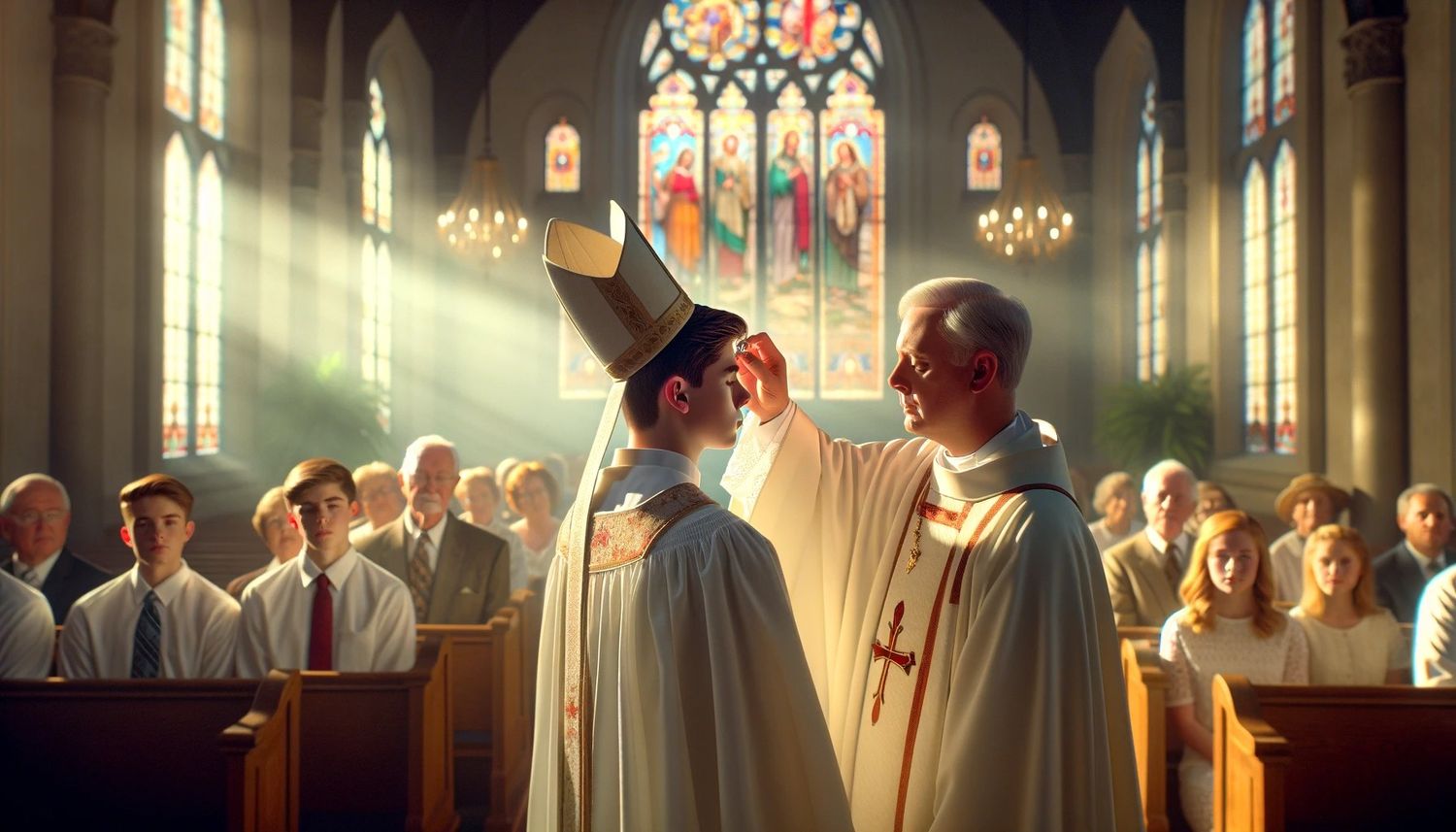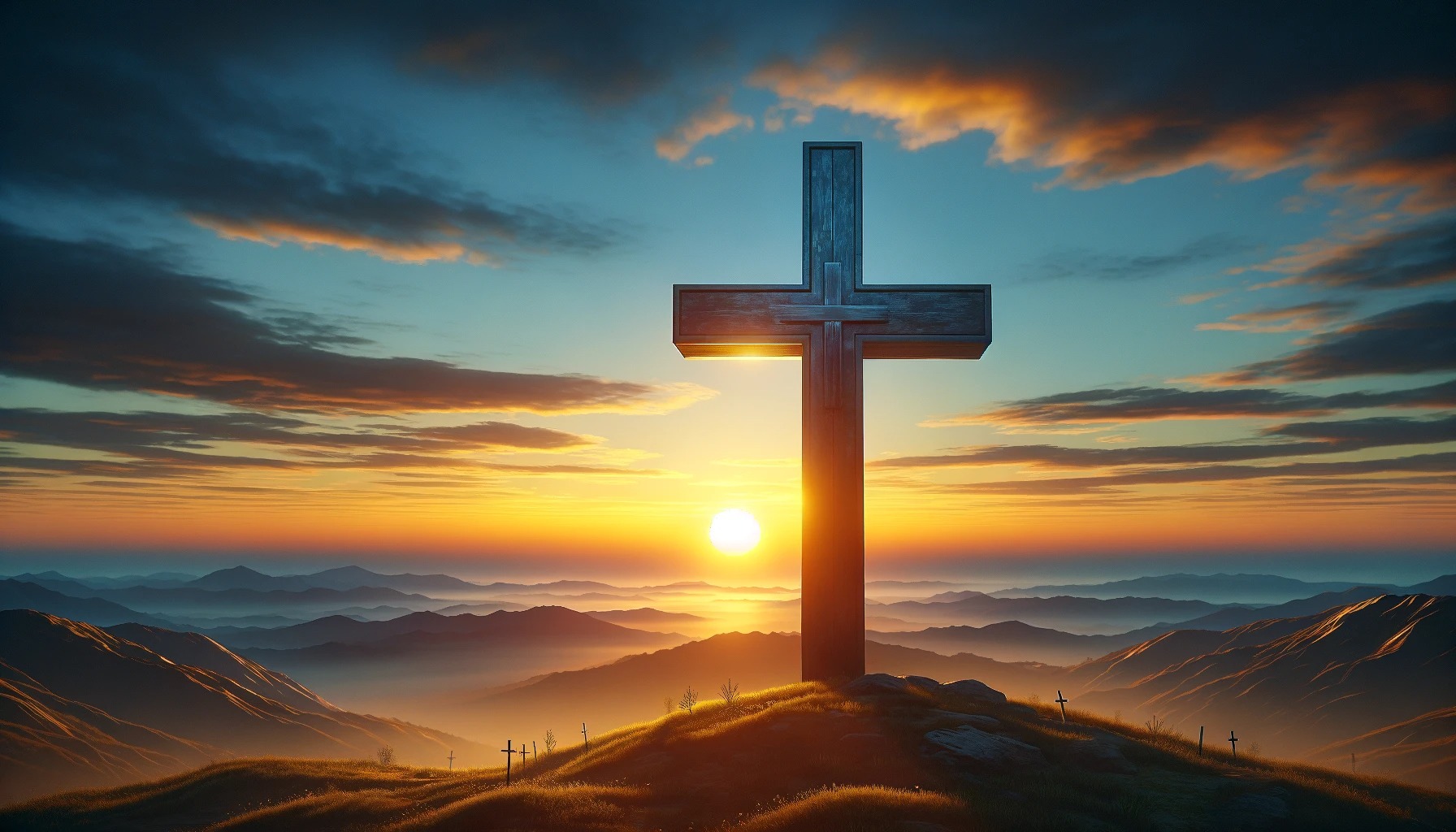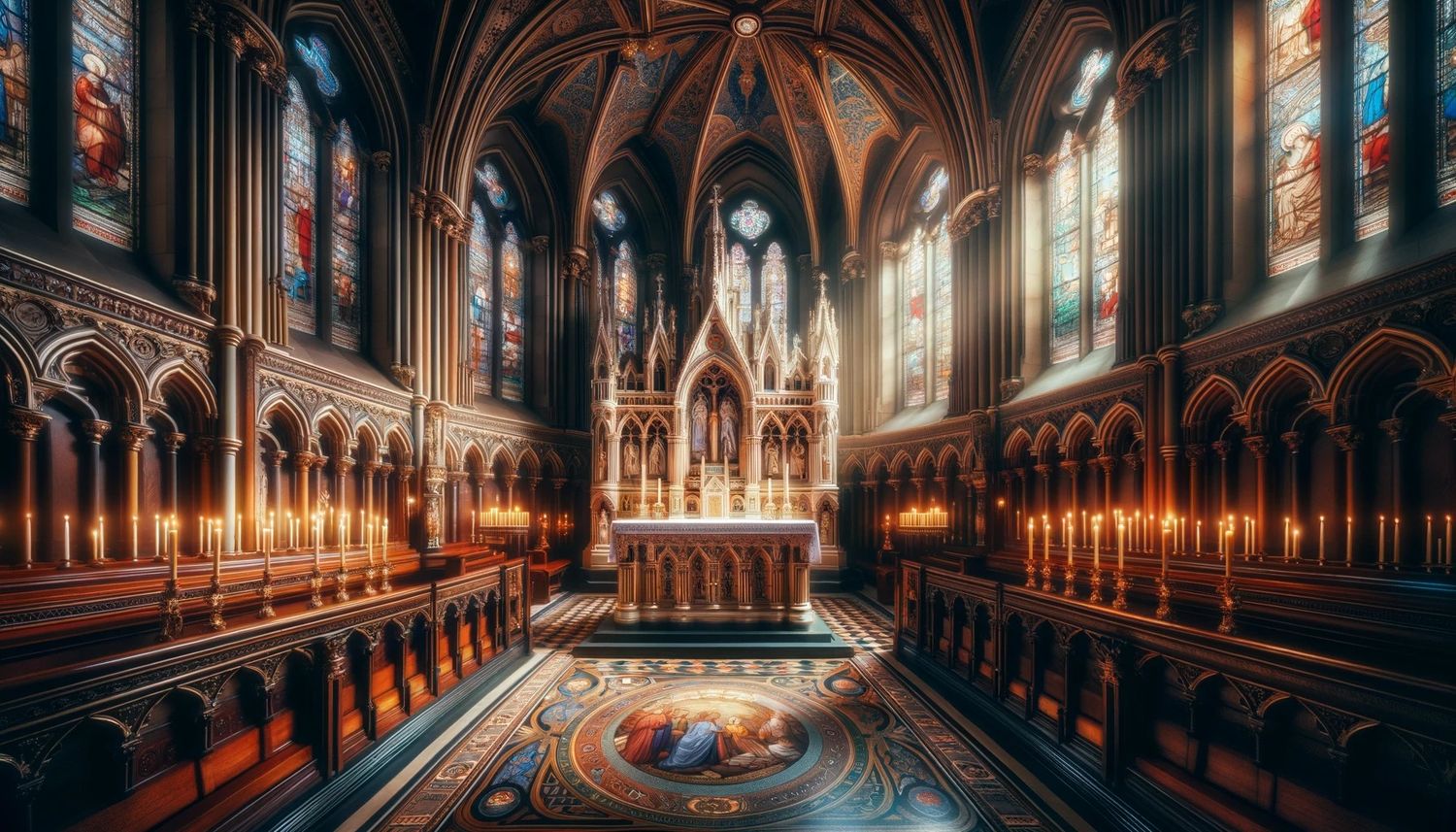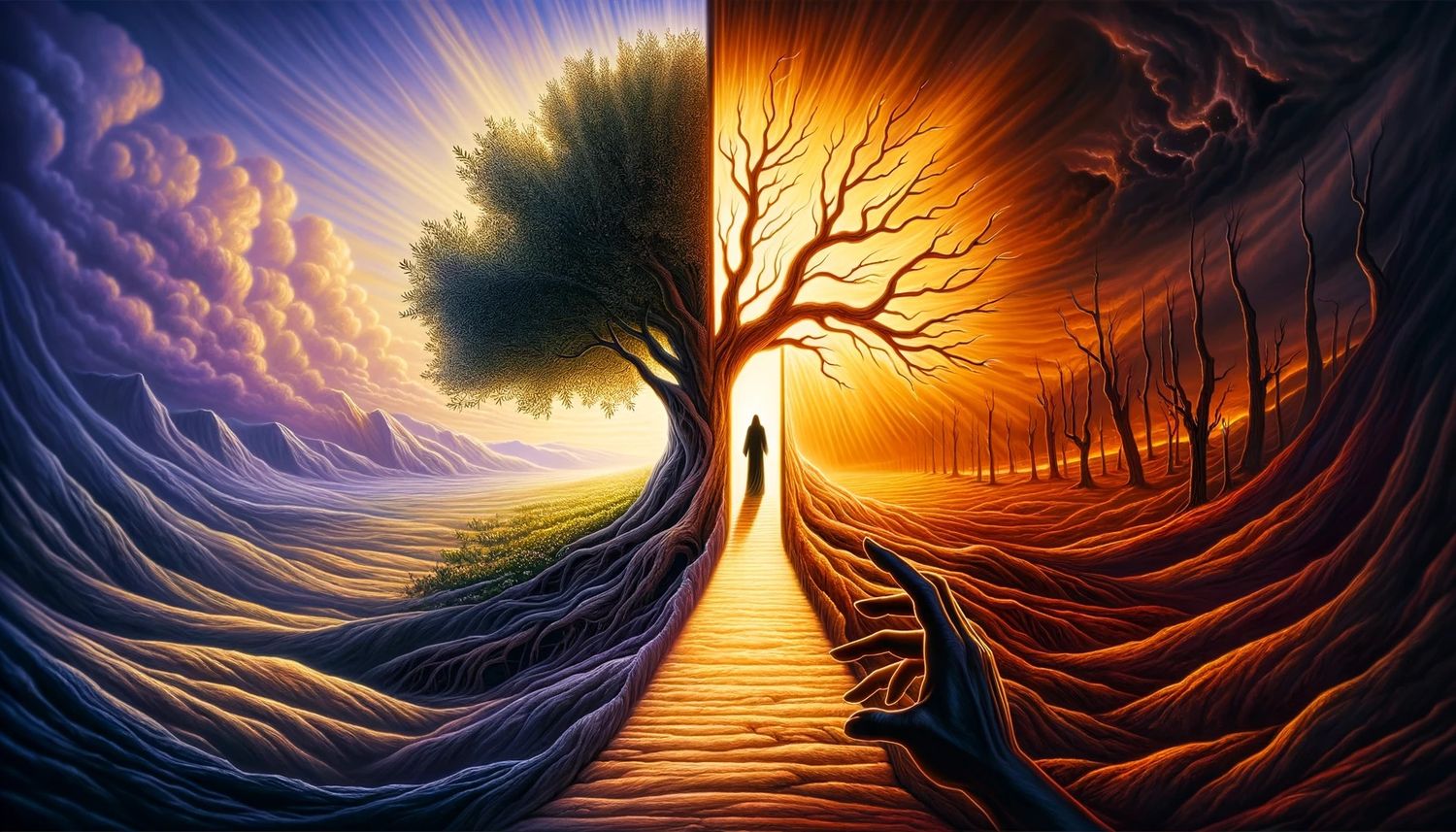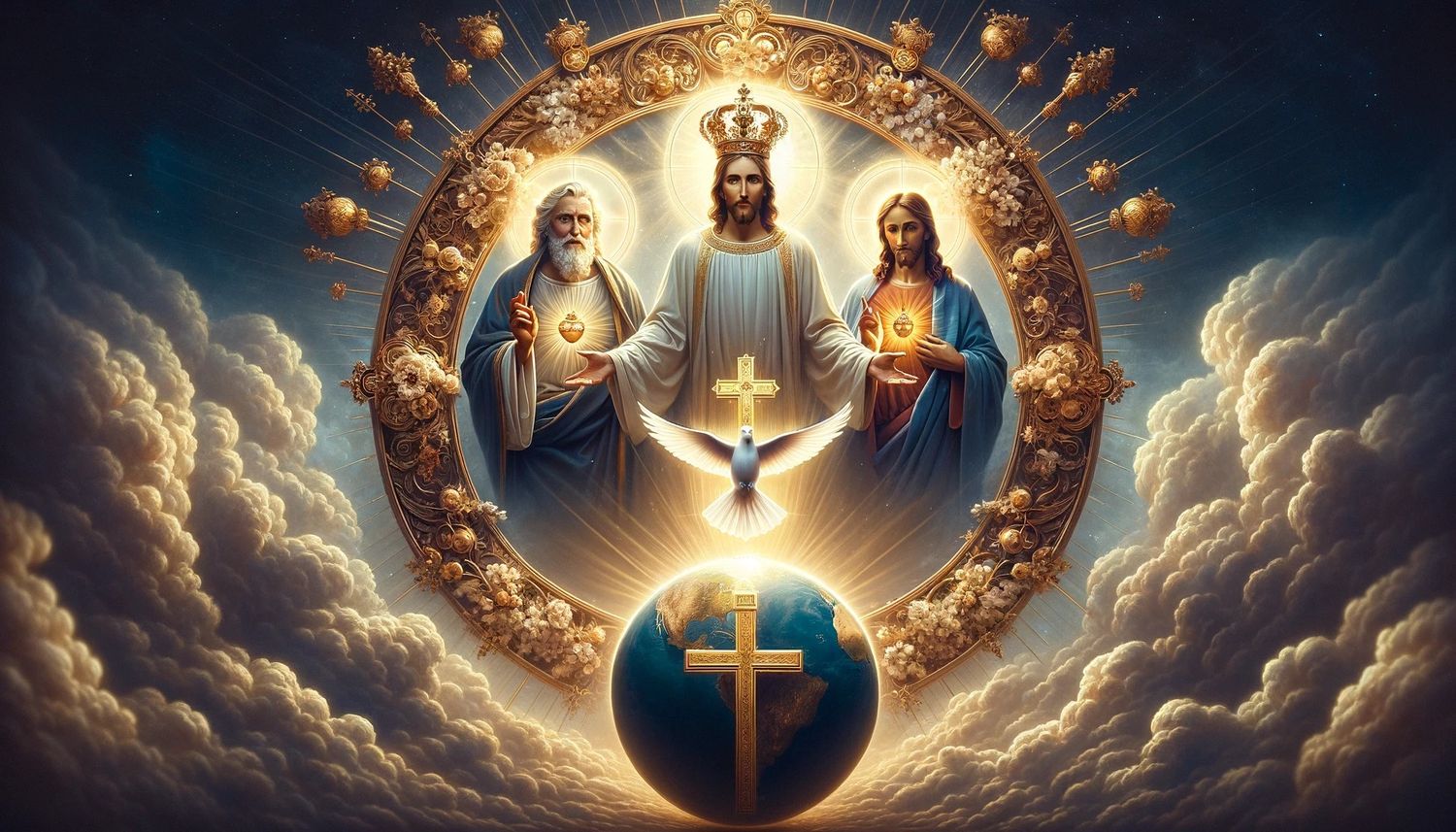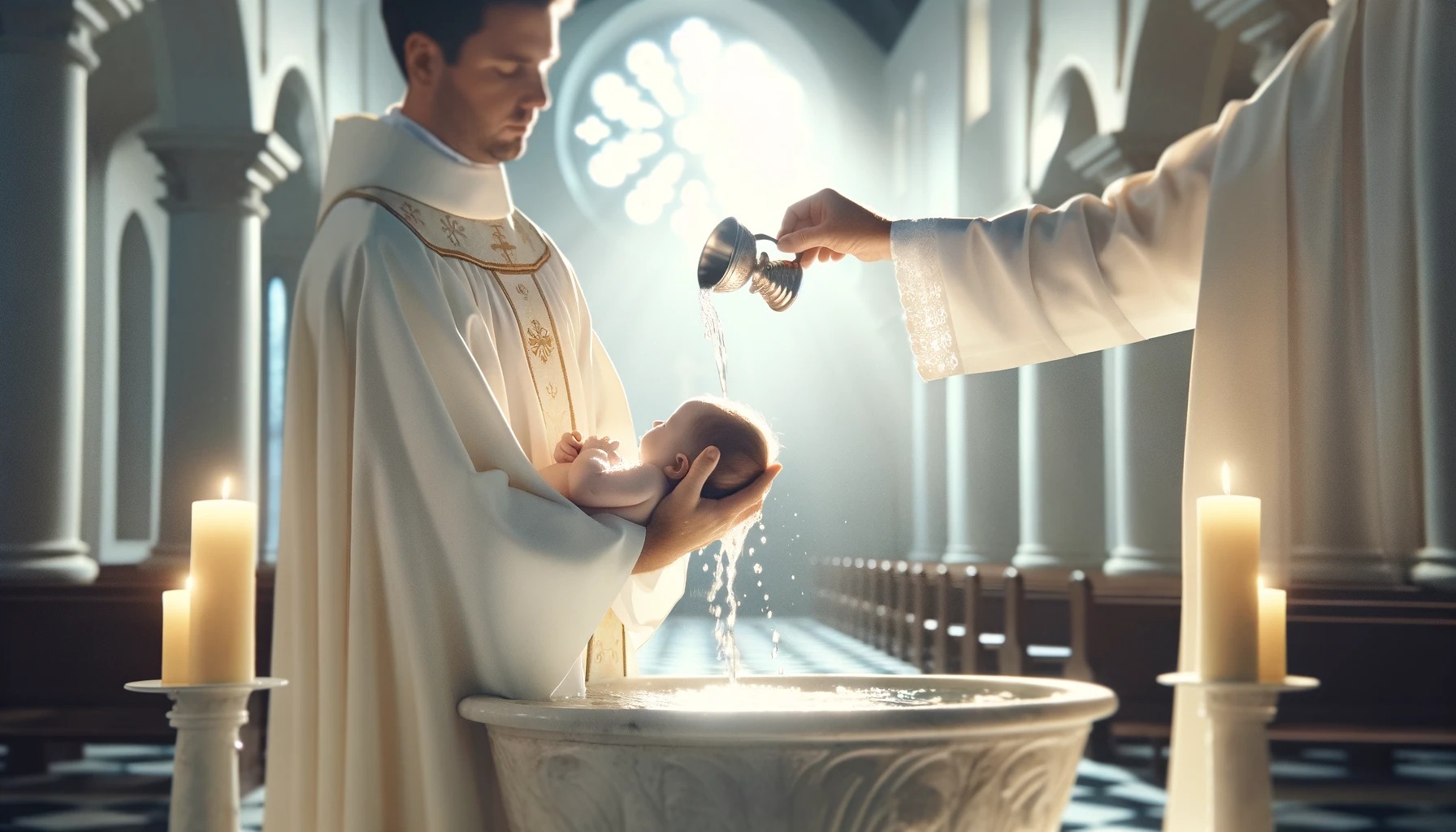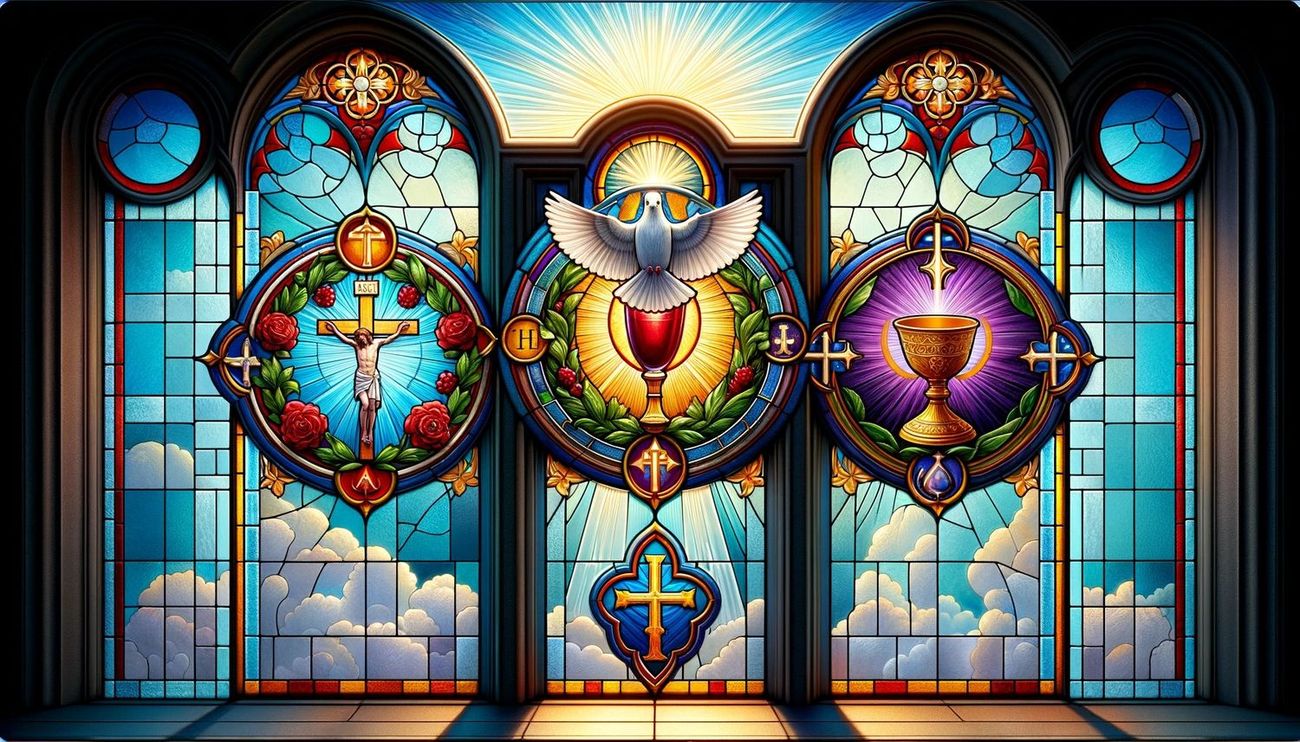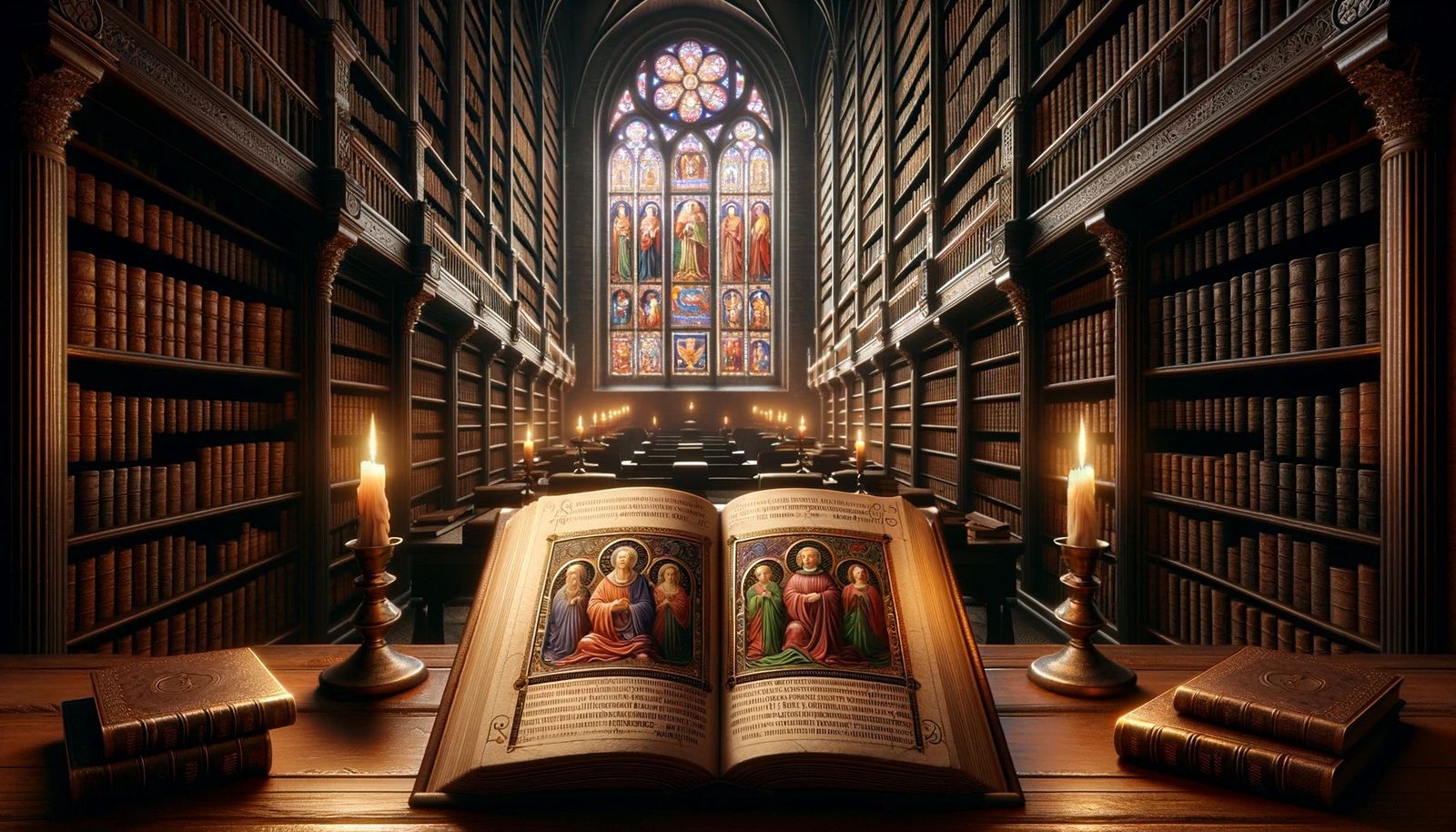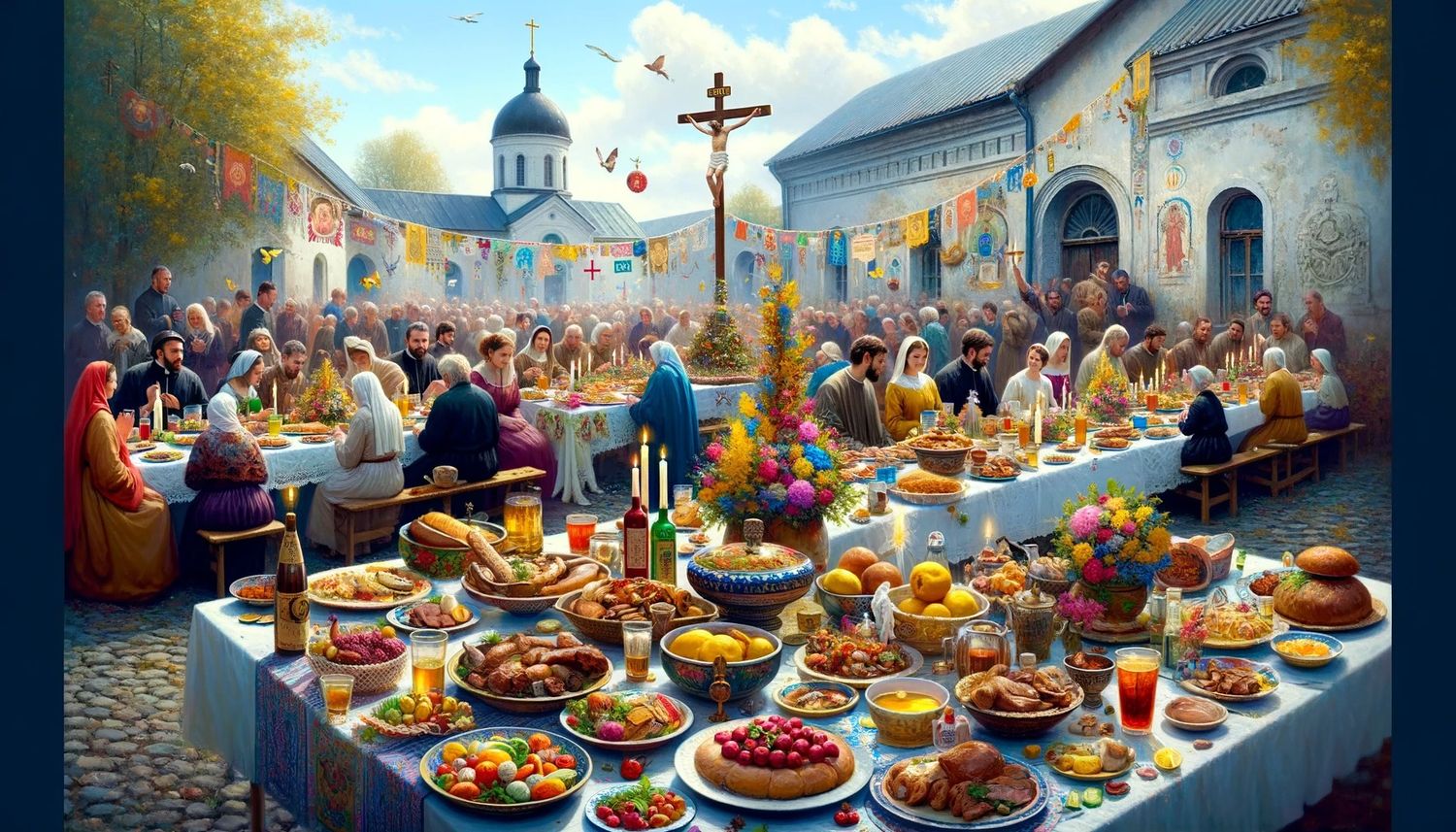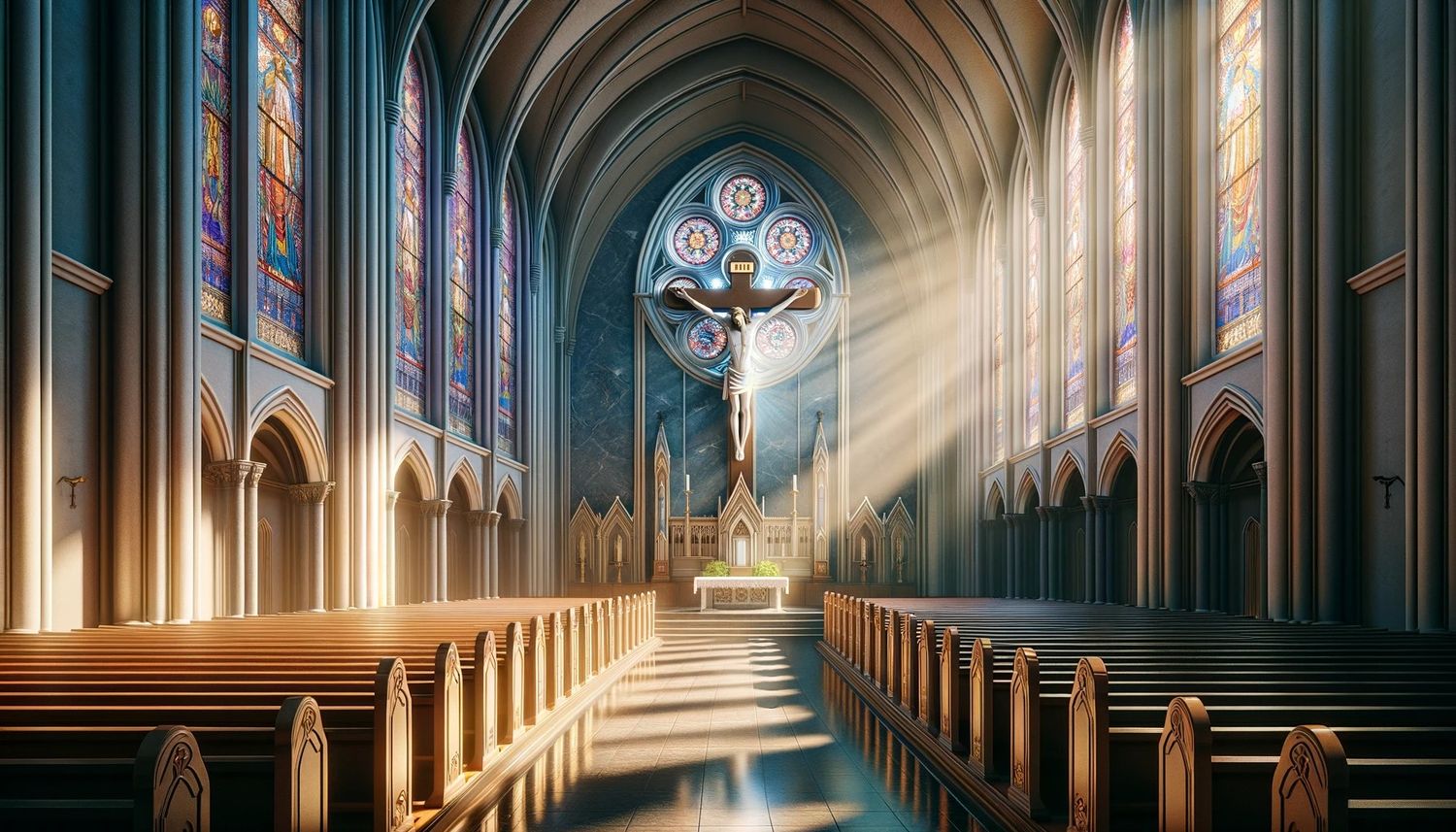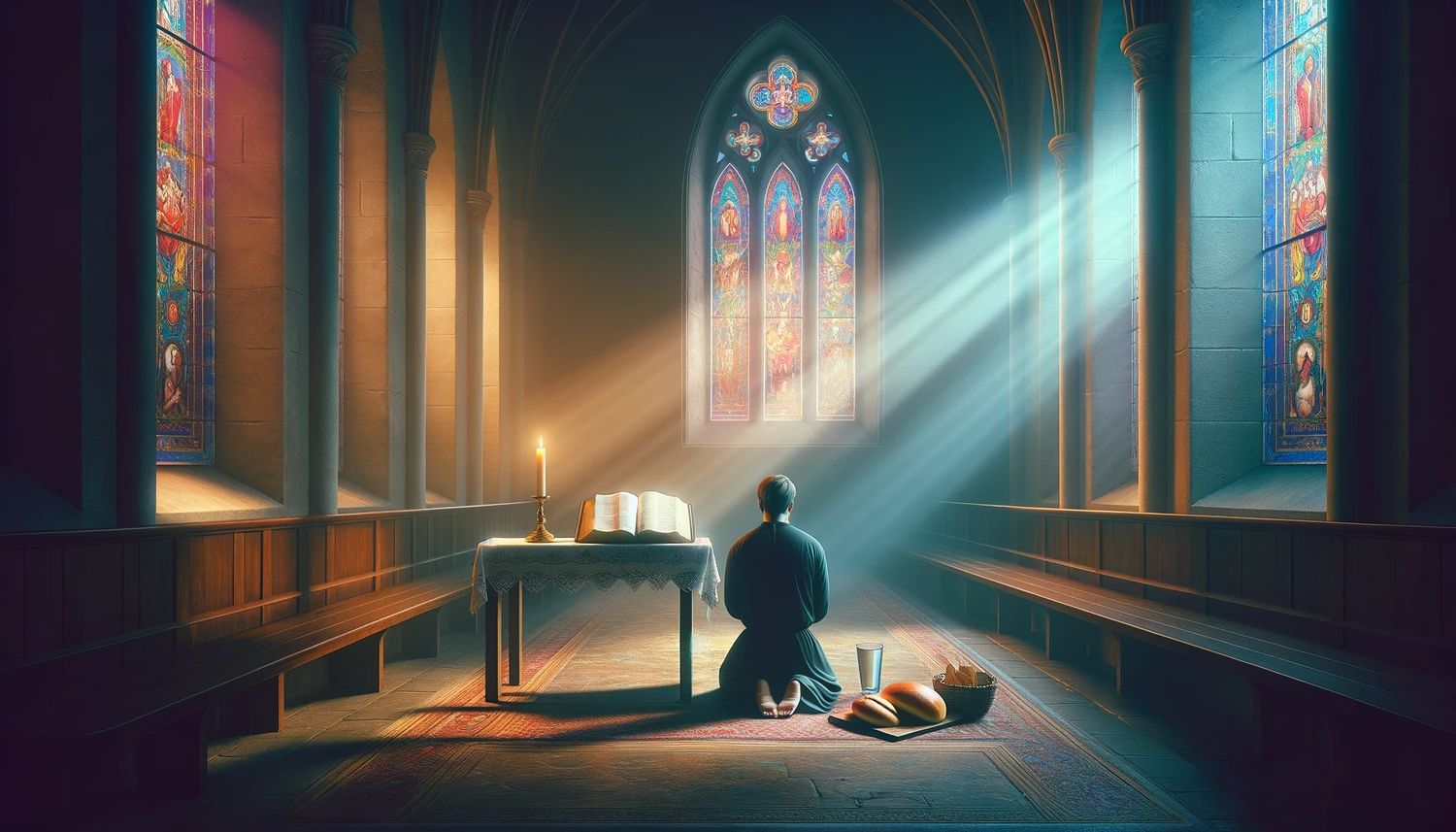Home>Theology and Spirituality>What Is The Trinity In Catholicism
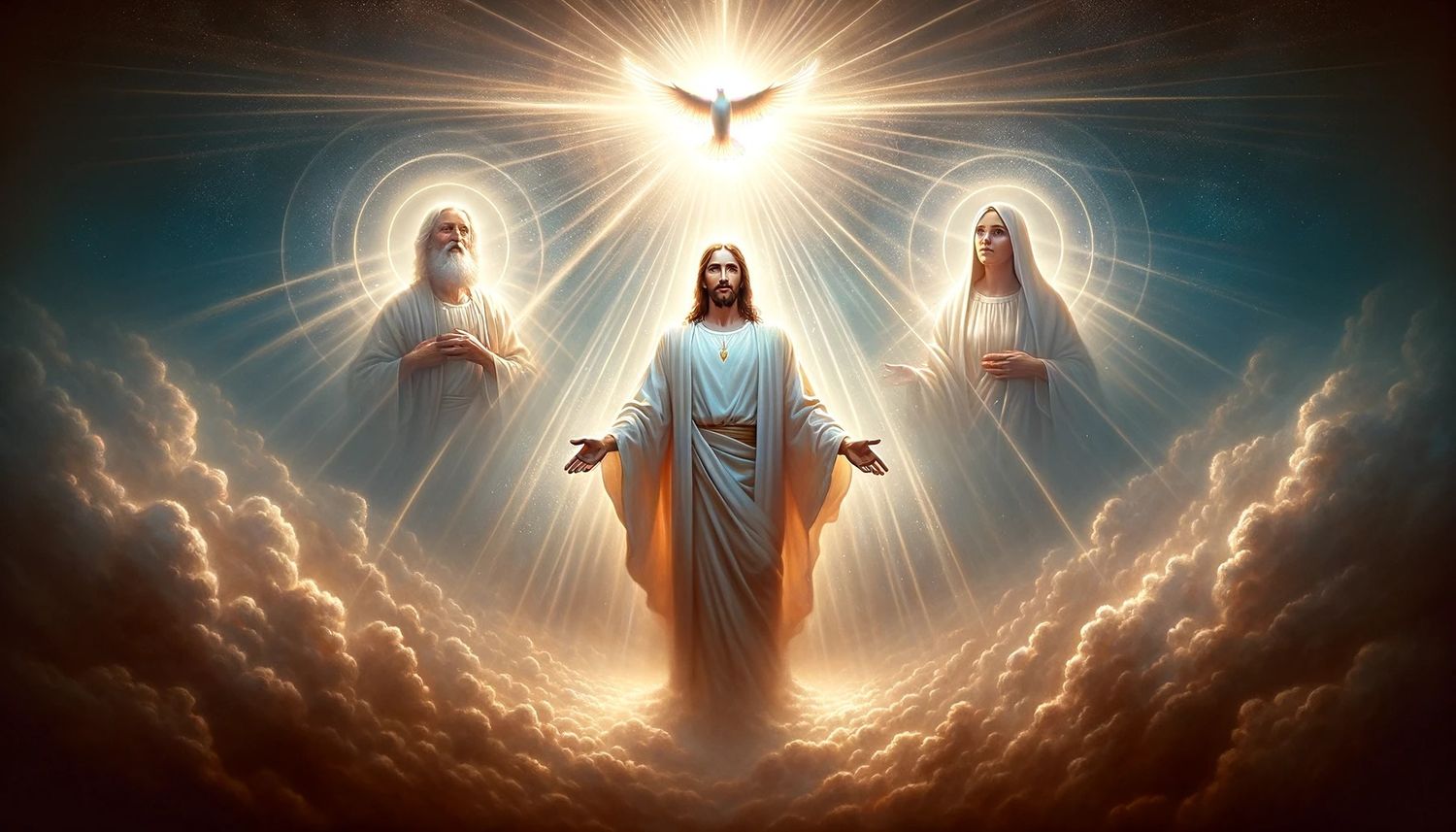

Theology and Spirituality
What Is The Trinity In Catholicism
Published: February 18, 2024
Peter Smith, Editorial Director at Christian.net, combines deep insights into faith, politics, and culture to lead content creation that resonates widely. Awarded for his contributions to religious discourse, he previously headed a major organization for religious communicators, enhancing dialogue on faith's societal impacts.
Discover the significance of the Trinity in Catholic theology and spirituality. Explore the beliefs and teachings surrounding this fundamental doctrine.
(Many of the links in this article redirect to a specific reviewed product. Your purchase of these products through affiliate links helps to generate commission for Christian.net, at no extra cost. Learn more)
Table of Contents
Introduction
The doctrine of the Trinity is a foundational belief in Catholicism, representing the complex and profound understanding of God as a triune being. This theological concept has been a subject of contemplation, debate, and reverence for centuries, shaping the core of Catholic beliefs and practices. Understanding the Trinity is not merely an intellectual exercise but a spiritual journey that delves into the mystery of God's nature and the interconnectedness of divine entities.
The Trinity encapsulates the belief in one God who exists in three distinct persons: the Father, the Son, and the Holy Spirit. This concept is not easily comprehensible, as it transcends human logic and reasoning, inviting believers to embrace the mystery and complexity of the divine nature. The Trinity is not a mere theological abstraction but a profound expression of God's relational nature and the interconnectedness of the divine entities within the Catholic faith.
As we embark on an exploration of the Trinity in Catholicism, it is essential to approach this topic with humility and reverence, acknowledging the limitations of human understanding when encountering the divine. The Trinity serves as a cornerstone of Catholic theology, shaping the understanding of God's presence in the world and the intricate relationship between the divine persons. Delving into the depths of the Trinity invites us to contemplate the unity, diversity, and relational dynamics within the Godhead, offering a glimpse into the unfathomable nature of the divine.
Throughout history, the doctrine of the Trinity has inspired theologians, mystics, and believers to reflect on the multifaceted nature of God and the implications of this belief for Christian life and worship. It is a testament to the richness and depth of Catholic spirituality, inviting individuals to embrace the mystery of the Trinity as they seek to deepen their faith and understanding of God's presence in their lives.
In the subsequent sections, we will embark on a journey to unravel the intricacies of the Trinity, exploring its significance in Catholic beliefs, the roles of the divine persons, and the controversies and misunderstandings that have surrounded this profound doctrine. Through this exploration, we aim to gain a deeper appreciation for the profound mystery of the Trinity and its enduring impact on Catholic theology and spirituality.
Read more: What Did Augustine Say About The Trinity
The Doctrine of the Trinity
The doctrine of the Trinity stands as a central tenet of Catholic theology, encapsulating the belief in one God who exists in three distinct persons: the Father, the Son, and the Holy Spirit. This foundational concept is rooted in the revelation of God's nature as expressed in the teachings of Jesus Christ and the writings of the early Christian Church. The Trinity represents a profound mystery that transcends human comprehension, inviting believers to contemplate the divine nature in all its complexity and unity.
At the heart of the doctrine of the Trinity lies the affirmation of monotheism, emphasizing the oneness of God. However, this monotheistic belief is uniquely expressed through the understanding of God as a triune being, existing eternally as three distinct persons in perfect unity. This intricate interplay of unity and diversity within the Godhead forms the basis of the Trinity, challenging human intellect and imagination to grasp the ineffable nature of God.
The doctrine of the Trinity finds its roots in the New Testament, where the Father, the Son (Jesus Christ), and the Holy Spirit are revealed in their distinct roles and relational dynamics. The Gospel accounts and the writings of the apostles bear witness to the divine revelation of the Trinity, portraying the Father as the creator and sustainer of the universe, the Son as the incarnate Word who became flesh for the redemption of humanity, and the Holy Spirit as the divine presence who empowers and sanctifies believers.
Throughout the early centuries of Christianity, the formulation of the doctrine of the Trinity became a focal point of theological reflection and debate. The Councils of Nicaea (325 AD) and Constantinople (381 AD) played pivotal roles in articulating the orthodox understanding of the Trinity, affirming the divinity of the Son and the Holy Spirit in relation to the Father. These councils sought to safeguard the integrity of the Christian faith against doctrinal deviations and heresies, solidifying the foundational beliefs that continue to shape Catholic theology to this day.
The doctrine of the Trinity serves as a theological framework through which Catholics perceive and relate to God. It underscores the relational nature of the divine persons, inviting believers into a profound communion with the triune God. This understanding of God as a community of love and perfect unity offers a compelling vision of divine transcendence and immanence, shaping the spiritual consciousness of Catholics as they seek to encounter and worship the triune God.
In essence, the doctrine of the Trinity stands as a testament to the unfathomable depths of God's nature, inviting believers to embrace the mystery and wonder of the divine. It serves as a cornerstone of Catholic faith, inspiring awe, reverence, and contemplation as individuals seek to comprehend the incomprehensible and encounter the triune God in their spiritual journey.
The Father, the Son, and the Holy Spirit
The doctrine of the Trinity in Catholicism revolves around the distinct yet inseparable identities of the Father, the Son, and the Holy Spirit. Each person within the Trinity embodies unique attributes and fulfills specific roles, contributing to the divine unity and the salvific mission of God. Understanding the distinctiveness and interconnectedness of the divine persons is essential to comprehending the depth of Catholic beliefs and the implications of the Trinity in the lives of believers.
The Father
The Father, as the first person of the Trinity, represents the source and origin of all existence. In Catholic theology, God the Father is revered as the creator of the universe, the sustainer of life, and the loving parent of humanity. The paternal nature of God is characterized by divine providence, compassion, and sovereignty, reflecting the boundless love and care that God extends to His creation. The Father's role in the Trinity underscores the divine authority and the eternal plan of redemption, culminating in the sending of His Son, Jesus Christ, to reconcile humanity to Himself.
The Son
The Son, identified as Jesus Christ, embodies the second person of the Trinity and holds a central position in Catholic faith and theology. The incarnation of the Son represents the divine condescension, as the eternal Word became flesh to dwell among humanity. Jesus Christ, through His earthly ministry, sacrificial death, and resurrection, serves as the embodiment of God's love and the mediator between God and humanity. In Catholic belief, the Son's redemptive work offers salvation and reconciliation, restoring the broken relationship between humanity and the Father, and illuminating the path to eternal life.
The Holy Spirit
The Holy Spirit, the third person of the Trinity, represents the divine presence and the source of spiritual empowerment within Catholicism. Often depicted as the advocate, comforter, and guide, the Holy Spirit permeates the hearts of believers, bestowing gifts, wisdom, and sanctifying grace. The Spirit's role in the Trinity is integral to the life of the Church, animating and unifying the body of Christ, and empowering individuals to live out their faith with courage and conviction. The Holy Spirit's indwelling presence serves as a constant reminder of God's immanence and the transformative power of divine love within the hearts of believers.
Interconnectedness and Unity
While distinct in their personhood and roles, the Father, the Son, and the Holy Spirit exist in perfect unity and harmony within the Trinity. This divine unity reflects the inseparable bond of love and mutual indwelling among the three persons, exemplifying the perfect community of the Godhead. The interconnectedness of the divine persons underscores the relational nature of God and invites believers to participate in the divine communion, mirroring the unity and love found within the Trinity.
In essence, the distinct identities and roles of the Father, the Son, and the Holy Spirit within the Trinity form the bedrock of Catholic beliefs, shaping the understanding of God's nature and the salvific work extended to humanity. Embracing the mystery and interconnectedness of the divine persons invites believers to deepen their relationship with the triune God and participate in the unfolding story of redemption and divine love.
The Role of the Trinity in Catholic Beliefs
The Trinity holds a pivotal role in shaping the core beliefs and practices of Catholicism, permeating every aspect of the faith and spiritual life of believers. At the heart of Catholic theology, the Trinity serves as the foundation upon which the understanding of God's nature, the redemptive work of Christ, and the transformative power of the Holy Spirit are built.
Divine Communion and Worship
The Trinity forms the basis of Catholic worship and devotion, as believers are invited into a profound communion with the triune God. The liturgical expressions, prayers, and sacramental rites within the Catholic tradition often invoke the names of the Father, the Son, and the Holy Spirit, emphasizing the relational dynamics and divine unity within the Godhead. Through worship, Catholics acknowledge and honor the distinct roles of the divine persons, offering adoration, thanksgiving, and supplication in recognition of the triune nature of God.
Read more: The Verse of the Holy Trinity Explained
Salvation and Redemption
The Trinity plays a central role in the Catholic understanding of salvation and redemption. The Father's love and providential care, the Son's sacrificial atonement, and the Holy Spirit's transformative work collectively contribute to the unfolding of God's redemptive plan for humanity. The salvific mission of the Trinity underscores the interconnectedness of divine grace, mercy, and empowerment, offering believers the assurance of reconciliation with God and the hope of eternal life through faith in the triune God.
Spiritual Formation and Discipleship
Within Catholic beliefs, the Trinity serves as a model for spiritual formation and discipleship. The relational dynamics among the divine persons exemplify the virtues of love, humility, and selflessness, providing a blueprint for believers to emulate in their spiritual journey. The triune God's invitation to participate in divine communion and reflect the image of God through virtuous living shapes the ethical and moral framework of Catholic discipleship, guiding individuals to embody the values of compassion, justice, and unity in their interactions with others.
Community and Unity
The Trinity fosters a sense of community and unity within the Catholic Church. The interconnectedness of the divine persons serves as a paradigm for the unity and diversity found within the body of Christ. Believers, inspired by the relational harmony of the Trinity, are called to embrace diversity, foster inclusivity, and cultivate a spirit of mutual love and support within the Christian community. The triune God's invitation to participate in divine communion and reflect the image of God through virtuous living shapes the ethical and moral framework of Catholic discipleship, guiding individuals to embody the values of compassion, justice, and unity in their interactions with others.
In essence, the Trinity permeates every facet of Catholic beliefs, serving as the theological cornerstone that informs the spiritual identity, worship practices, and ethical principles of the faith. The profound mystery and interconnectedness of the divine persons within the Trinity invite believers to embrace the transformative power of God's love, participate in the redemptive story of Christ, and embody the virtues of the Holy Spirit in their daily lives.
Controversies and Misunderstandings
The doctrine of the Trinity, while foundational to Catholic beliefs, has been a subject of controversies and misunderstandings throughout the history of Christianity. The intricate nature of the Trinity, with its affirmation of one God in three persons, has led to theological debates, doctrinal disputes, and divergent interpretations that have challenged the unity of the Church and the clarity of this profound mystery.
One of the earliest controversies surrounding the Trinity emerged in the form of the Arian heresy during the 4th century. Arius, a presbyter in Alexandria, propagated the belief that the Son, Jesus Christ, was a created being and not co-eternal with the Father. This assertion challenged the orthodox understanding of the Trinity and sparked intense theological debates, culminating in the Council of Nicaea in 325 AD. The Nicene Creed, formulated in response to Arianism, affirmed the consubstantiality of the Son with the Father, establishing the divinity of Christ as an essential tenet of Catholic faith.
In subsequent centuries, the precise articulation of the Trinity continued to be a point of contention, leading to further schisms and disagreements within the Church. The Filioque controversy, centered on the addition of the phrase "and the Son" to the Nicene Creed's description of the procession of the Holy Spirit, created a theological rift between the Eastern and Western Christian traditions. This divergence in understanding the procession of the Holy Spirit contributed to the eventual schism between the Roman Catholic Church and the Eastern Orthodox Church in 1054 AD, highlighting the profound impact of doctrinal disagreements related to the Trinity.
Furthermore, the complexities of the Trinity have often led to misunderstandings among laypersons and even theologians. The attempt to rationalize and explain the triune nature of God has at times resulted in oversimplifications or misrepresentations that fail to capture the depth and mystery of the Trinity. The use of analogies, such as the shamrock or water in its various states, while well-intentioned, can inadvertently distort the orthodox understanding of the Trinity, potentially leading to misconceptions and theological errors.
In contemporary times, the Trinity continues to be a point of theological inquiry and dialogue, with scholars and religious leaders grappling with the nuances of this foundational doctrine. The challenge of articulating the Trinity in a manner that is both faithful to tradition and relevant to contemporary sensibilities remains an ongoing endeavor within Catholic theology.
Despite the controversies and misunderstandings that have surrounded the Trinity, the enduring significance of this doctrine in Catholicism cannot be overstated. The mystery of the Trinity invites believers to embrace the profound depths of God's nature, fostering humility, reverence, and a sense of awe in the face of the divine. While controversies and misunderstandings have tested the unity of the Church, they have also spurred deeper reflections on the incomprehensible nature of the triune God, enriching the theological heritage of Catholicism and inspiring a continued pursuit of understanding and reverence for the Trinity.
Read more: What Is Catholicism?
Conclusion
In conclusion, the doctrine of the Trinity stands as a profound and foundational belief within Catholicism, encapsulating the mystery of one God in three distinct persons: the Father, the Son, and the Holy Spirit. This theological concept transcends human comprehension, inviting believers to embark on a spiritual journey of contemplation, reverence, and awe in the face of the divine. The Trinity serves as a theological framework that shapes the understanding of God's nature, the redemptive work of Christ, and the transformative power of the Holy Spirit within the Catholic faith.
The interconnectedness of the divine persons within the Trinity underscores the relational nature of God, inviting believers into a profound communion with the triune God. This divine communion permeates every aspect of Catholic beliefs, shaping worship practices, ethical principles, and the spiritual formation of individuals within the faith community. The Trinity serves as a model for unity, love, and community, inspiring believers to reflect the image of God in their interactions with others and fostering a sense of inclusivity and mutual support within the Church.
Throughout history, the doctrine of the Trinity has been the subject of controversies, theological debates, and misunderstandings, challenging the unity of the Church and prompting deeper reflections on the incomprehensible nature of the triune God. Despite these challenges, the enduring significance of the Trinity in Catholicism remains unwavering, inviting believers to embrace the mystery and wonder of the divine while inspiring a continued pursuit of understanding and reverence for the Trinity.
As Catholics continue to navigate the complexities of the modern world, the doctrine of the Trinity stands as a timeless reminder of the unfathomable depths of God's nature and the enduring relevance of this foundational belief. Embracing the mystery of the Trinity fosters humility, reverence, and a sense of awe in the face of the divine, inviting believers to deepen their faith and encounter the triune God in their spiritual journey. The Trinity remains a testament to the richness and depth of Catholic spirituality, inviting individuals to contemplate the unity, diversity, and relational dynamics within the Godhead, offering a glimpse into the unfathomable nature of the divine.
